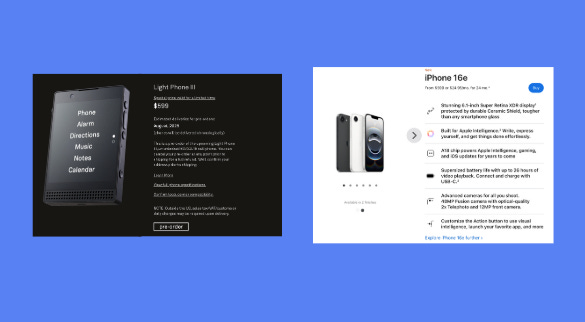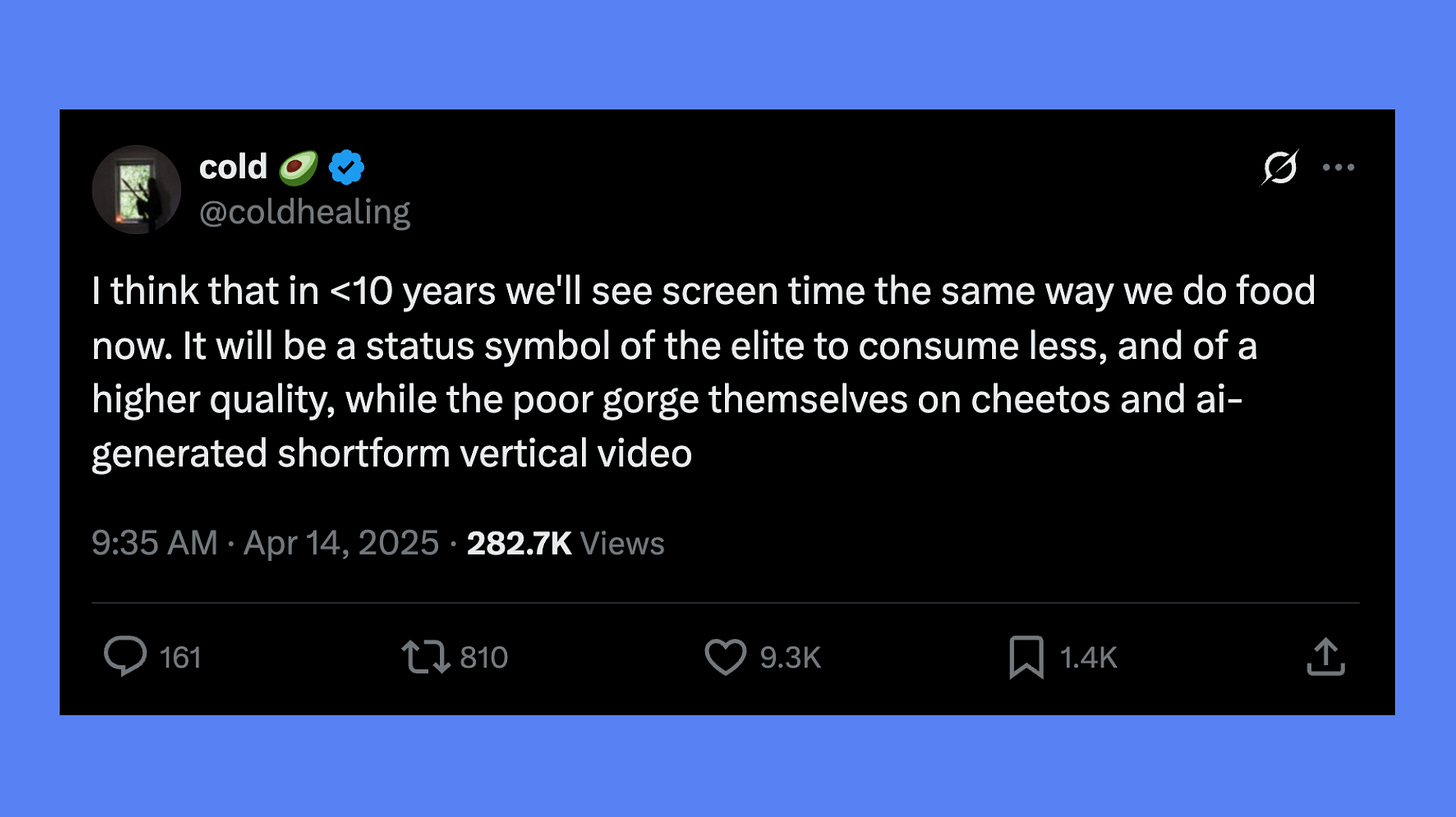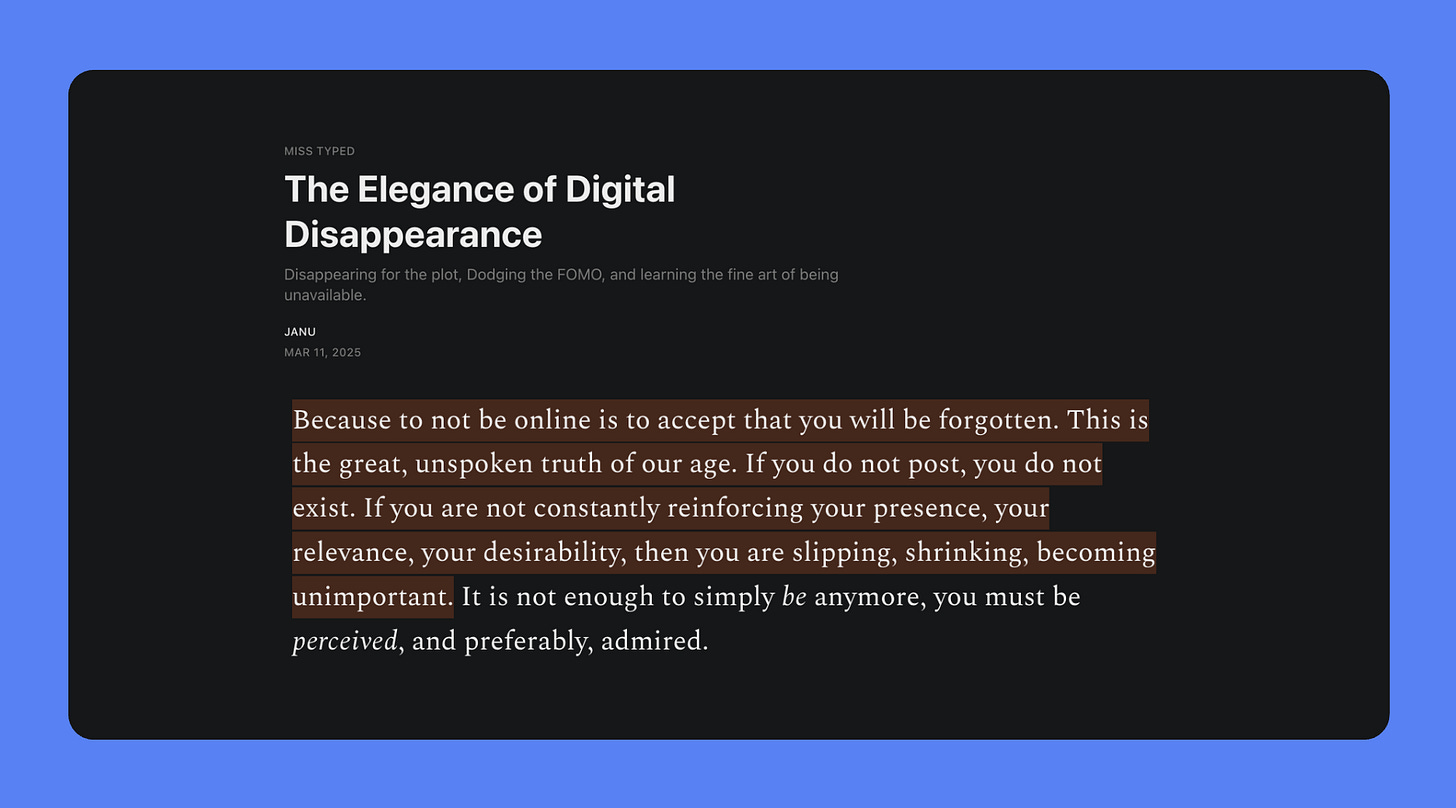- Braun & Brains
- Posts
- The Truth About Digital Detoxes: Logging Off is a Luxury
The Truth About Digital Detoxes: Logging Off is a Luxury
Why dumbphones won’t fix your screen time (sorry)
I grabbed coffee with Josh Kaplan from Smooth Media and he inspired me to get in front of the webcam. Here’s a video to go along with this week’s Substack.
Thanks for watching! If you enjoy it, feel free to like, comment, and subscribe.
Brain Dump: Logging Off Is a Luxury
It’s been kinda frustrating for me to see that dumbphones, app blockers, and detox tools having (another) moment online. It feels almost predatory, like companies are profiting off people’s addictions without actually addressing the root of the problem. A new device won’t undo the compulsive habits that made you want to escape it the first place. It just helps you feel better about repeating the same patterns.
So many people I know are stuck in the same loop, using the same phone, with the same apps, scrolling the same feeds. It’s not just about our high screen time. It’s about how little variety or meaning we’re getting from it. The repetition is wearing us down. That exhaustion has created a market for escape, and companies are starting to sell it back to us.
Take the Light Phone 3. It only does calls, texts, music, and maps. No social, no browser, but it costs $600 if you preorder and nearly $800 at launch. That’s iPhone money for something that does less, which says a lot about where we’re at. Even trying to opt out is becoming a premium experience.

Of course, big tech is already pivoting to meet the moment in their own way. Apple filed a patent for a foldable smartwatch meant to support “phoneless experiences.” Meta is working on smart glasses that let you scroll Instagram and Facebook without holding your phone. Apple Watches are being used as minimalist texting devices with the help of tinyPod.

There are even phone cases that flip your screen face-down when someone says “cheers” at a party, created by Heineken. It all sounds ridiculous until you realize how desperate people are for a break.
These all make the disconnection look sleeker, but they don’t help us actually detach. They just help you look like someone who has. The problem isn’t the device. It’s the behavior behind it. When you try to truly unplug, you start to see how much of life now depends on staying online.
A friend of mine in college tried to ditch his smartphone for a flip phone. It fit his values, but in practice, it cut him off a bit as most of our group chats lived on Snapchat. He didn’t stop mattering, but he stopped being in the loop. Logging off might have made his life freer, but it also made it a lot smaller.
I’ve found that stepping away only really works for people with a certain kind of life. If you have a flexible job, consistent friends, and a little extra time, you can afford to disconnect. That being said, for a lot of people, being hard to reach isn’t peaceful; it’s inconvenient. It’s not that they don’t want to unplug; it’s that doing so would make everything else harder. People who can’t afford childcare may rely on a screen to keep their kids entertained. People climbing the ranks at work feel pressure to always be online. A missed email or call is enough to send cortisol surging faster than a rollercoaster drop.
Stepping back can feel less like rest and more like losing access to something essential. Our ability to choose how we engage with tech is starting to split along class lines. The X account coldhealing summed this up in an X post: “I think that in <10 years we'll see screen time the same way we do food now. It will be a status symbol of the elite to consume less, and of a higher quality, while the poor gorge themselves on cheetos and AI-generated shortform vertical video.”

What makes it so hard to stay offline, though, isn’t just habit or lifestyle. It’s fear. Part of what keeps people online is the quiet worry that if you stop showing up, you’ll disappear. Our memories, conversations, photos, and group chats all live in our phones. Janu wrote it best in Miss Typed: “Because to not be online is to accept that you will be forgotten. This is the great, unspoken truth of our age. If you do not post, you do not exist. If you are not constantly reinforcing your presence, your relevance, your desirability, then you are slipping, shrinking, becoming unimportant. It is not enough to simply be anymore, you must be perceived, and preferably, admired.”

So if the phone isn’t the core issue, what is? A $600-minimalist phone won’t save you if you’re still stuck in the same loops. A weekend off the grid won’t fix your attention unless you understand what fractured it. The device doesn’t matter if the behavior stays the same.
You don’t have to disappear to take control. You don’t have to delete everything or vanish from the internet. You have to decide how much space your phone actually deserves in your life.
This newsletter was edited by Annalise Gutenberger! Looking to get human eyes on your work before it goes live? Send her a LinkedIn message.
Thanks for reading Braun & Brains! Subscribe for free to receive new posts and support my work.
Reply